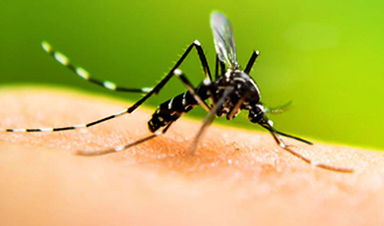NanoApps Medical, Inc. (Vancouver, Canada) is working to develop a point of care diagnostic nanobiosensor platform for the detection of Malaria via saliva samples, which may be reconfigured to detect Ebola, and Zika. The use of this nanobiosensor will be far less invasive and safer than through the extraction of blood samples, while conveying more rapid results. The current gold standard for the detection of Malaria is blood smear microscopy, the results of which may take from many hours to several days to determine. This test also has the requirements of technical expertise in blood sample preparation, and a trained microscopist. Hence, the proposed nanobiosensor would be a significant improvement in terms of expediting and simplifying the diagnosis of Malaria, Ebola, and Zika in that it would be easy to administer, and provide rapid and clearly understandable results.



(a) Plasmodium falciparum sporozoite
(Image credit: Microbiology 2009)
(b) Color-enhanced electron micrograph of Ebola virus particles
(Image Credit: Thomas W. Geisbert, Boston University School of Medicine, Wikimedia Commons)
(c) Space-fill drawing of the Zika virus capsid.
(Image Credit: David Goodsell (RCSB Molecule of the Month 197, June 2016, Wikimedia Commons)
The potential development of the capacity to accurately detect these three serious diseases in saliva using this envisaged non-invasive, cost effective, and easy to use bionanosensor platform may serve as an indispensable diagnostic tool globally. Further, it may conceivably be integrated with smartphone technologies to not only have the capacity for the detection of these conditions, but also to rapidly convey secure medical data worldwide to facilitate early treatment and improved patient outcomes.

![]()







Leave A Comment